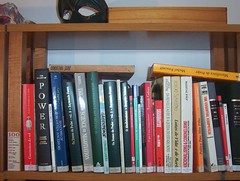This is my downfall in the world of writing. Maybe I should have said, one of my downfalls. POV or point of view, has been such a headache to me. I have people review my writing and they can immediately tell me the where and when I have changed POV in the story. Poor pitiful me, I am such a failure, NOT!!!
The point of view you choose for your story will affect the way your readers respond to your characters and actions. The tone and theme of your story is also affected by the POV.
To determine your point of view, you may ask yourself the following questions.
1. Who will be speaking: the narrator or the character?
2. Whose eyes are seeing the events of the story happen?
3. Whose thoughts do the reader have access to?
4. From what distance are the events being viewed?
The first person POV is a story narrated by the character in the story. Usually it is the main character or the protagonist. The story is from the I point of view. I went, I saw, I felt, so forth. The reader gets into the story through the narrators eye’s, touch, smell, action. You write in the voice, words and tone of your character.
An example of first person POV: I had to find out where Sam was headed, so I hid behind the shrubs next to the house. I thought Sam would head for his car, but he fooled me. He took off, on foot, heading south towards the graveyard.
You may also use three other first person POV’s: (1. Multiple vision, which lets multiple narrators tell the story. (2. Peripheral would be having another character tell the story. (3. The unreliable first person is a person telling the story, has all the facts, but can’t be trusted. It might be a schizophrenic, or a compulsive liar.
I am going to be dividing POV into parts to make it a little easier to digest. I am posting a video on writing in first person. Content is good, but the speaker doesn’t speak well, um, you know, um. I like it, um, but, um, you um, will have to um look over um her bad speaking um.  http://youtu.be/ydlOjhkgr74
http://youtu.be/ydlOjhkgr74
 We use them all the time, but the majority of the time we do not put names to them. They seem
We use them all the time, but the majority of the time we do not put names to them. They seem 



